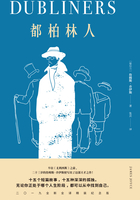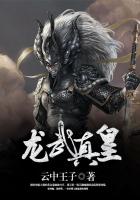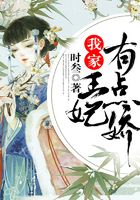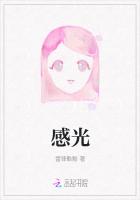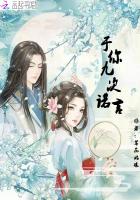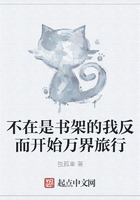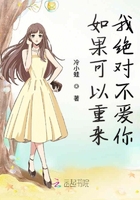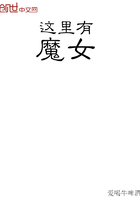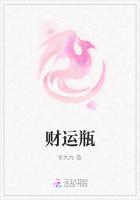General Preface
It is my great honour to have been asked to write a General Preface for this important series of award-winning translations of Australian literature by Professor Li Yao, to be published by Qingdao Publishing House. The series is in celebration of Professor Li Yao's 40th Anniversary as a translator of Australian literature, which coincides with the 45th Anniversary of the establishment of diplomatic relations between our two countries. As I will explain, these two anniversaries are closely connected.
The Australian Labor Party, led by Gough Whitlam, had recognised the Peoples'Republic of China as early as 1955, but it was another seventeen years before it was elected into government, on 2 December 1972. Less than three weeks later, on 21 December 1972,Prime Minister Gough Whitlam signed the joint communique establishing diplomatic relations between Australia and The Peoples'Republic of China. Under the terms of the Communique, the two Governments agreed to "develop ... diplomaticrelations, friendship and co-operation between the two countries on the basis of the principles of mutual respect ... equality and mutual benefit, and peaceful coexistence".
The Australian Embassy in Beijing was opened on 12 January 1973, and later that year Gough Whitlam became the first Australian Prime Minister to visit China, holding historic meetings with Zhou Enlai and Mao Zedong. Whitlam's establishment of diplomatic relations between Australia and China has been described as the single most important event in relations between our two countries in the twentieth century, and remains the foundation of the relationship today.
In addition to trade and tourism, cultural and educational exchanges have been of increasing importance to the relationship between our two countries. Since the 1970s, these links have included the study of Australian literature. The first five Chinese students to study in Australian universities after the establishment of diplomatic relations arrived in 1975, and the number increased rapidly from the late 1980s. Professor Li Yao's career in translating Australian literature for generations of Chinese readers has been central to this story of cultural exchange.
After graduating from Inner Mongolian Normal University in 1966,Li Yao worked as a writer and editor for journals in Inner Mongolia until his appointment as Professor of English at the Training Centre of the Ministry of Commerce in Beijing in 1992.He became a member of the Chinese Writers'Association in 1986, specialising in literary translation. At that time, he started collaborating with Professor Hu Wenzhong at Beijing Foreign Studies University on the translation of Australian literature. Professor Hu is a graduate of the University of Sydney, a member of the so-called "Gang of Nine", who were among thefirst students from China to undertake graduate study in Australia after the Cultural Revolution of 1966 to 1976.In 1979, the "Gang of Nine" studied under my predecessor as Professor of Australian Literature at the University of Sydney, Professor Dame Leonie Kramer. I was then a young tutor in the English Department researching my own PhD thesis, and I well remember the presence of our Chinese visitors in the Department. The "Gang of Nine" proved influential in developing Australian Studies in China after their return. Since that time, over 30 Australian Studies Centres have been set up across China. A number of these centres have courses on Australian literature, and have people working on translating and introducing Australian literature to Chinese readers. They include Peking University and Beijing Foreign Studies University, where Professor Li Yao teaches advanced translation studies, as well as, Shanghai's East China Normal University, Renmin University, Anhui University, Suzhou University, Inner Mongolia University and Inner Mongolia Normal University.
It was Professor Hu Wenzhong who first encouraged Li Yao to make his career in the study and translation of Australian literature. When they met in Beijing in the mid 1980s, Professor Hu explained that Australian literature was still an untouched field in China, and he encouraged Li Yao to devote himself to this area and make a contribution to it as a translator. Before the Cultural Revolution, Chinese readers had some familiarity with American, British, Russian, French, German and other European literatures, but they knew little about Australian literature. At that time, only Henry Lawson, Frank Hardy and a few other "social realist" writers were known through translation. Collaborating together, Professor Hu and Li Yao translated Patrick White's The Tree of Man, which was published by Shanghai Translation Publishing House in 1991.Patrick White was Australia's most famous writer, having won the Nobel Prize in 1973.Unlike the earlier realist writers, he was significant because his novels mediated Australian experience and the Australian landscape through the stylistic innovations of international modernism.
After collaborating with Professor Hu, Li Yao continued to translate Australian literature, carrying on the tradition that he had initiated. Li Yao today has translated a staggering total of 35 titles. The list of his translations includes novels by Brian Castro, Richard Flanagan, Anita Heiss, Colleen McCulloch, David Malouf, Alex Miller, and Kim Scott, as well as important works of history and non-fiction. Most of Li Yao's translations were generously supported by funding from the Australia-China Council, the Literature Board of the Australia Council and FASIC, the Foundation for Australian Studies in China. The works selected for re-printing in the 45th Anniversary series include many of the novels that have gone on to achieve fame both in Australia and internationally through their winning of prizes such as the Miles Franklin Literary Award, the Commonwealth Writers Prize, and the Man Booker Literary Award. His translations include Patrick White's novels, The Tree of Man and A Fringe of Leaves, and his autobiography, Flaws in the Glass; two of the earliest novels about Australian-Chinese relationships, Brian Castro's Birds of Passage, and Alex Miller's The Ancestor Game; and Avenue of Eternal Peace, by academic and former cultural officer in Beijing, Nicholas Jose. The list also includes titles by the three Australian authors who have won the prestigious Man Booker Literary Prize:Peter Carey's True History of the Kelly Gang, Tom Keneally's Woman of the Inner Sea and Richard Flanagan's Gould's Book of Fish. In addition to The Ancestor Game, which won both the Miles Franklin Literary Award and the Commonwealth Writers Prize, there are two other novels by Alex Miller, Landscape of Farewell and Coal Creek. In addition to works offiction, Li Yao's translations of important works of non-fiction include David Walker's memoir Not Dark Yet, and Mara Moustafine's Secrets and Spies:The Harbin Files, both of which in different ways touch on people-to-people Chinese-Australia links.
In more recent years, Li Yao has continued to provide leadership and innovation by keeping up with the latest developments in Australian literature, and continuing to introduce new works by Australian writers to Chinese readers. He has recently shown a particular interest in the areas of Australian children's literature, and writing by Australia's Indigenous authors, and there are examples of these works also included in the Anniversary series. Sponsored by the Australia-China Council, from 2010 Li Yao worked to select and translate 10 Australian children's books, including such well-known and loved classics as Ethel Pedley'sDot and the Kangaroo, May Gibbs'Tales of Snugglepot and Cuddlpie, Ethel Turner's Seven Little Australians, Dorothy Wall's Blinky Bill, Ruth Park's The Muddle-Headed Wombat, and Colin Thiele's Storm Boy. These books were published by People's Literature Publishing House and have become very popular in China. New editions of Dot and the Kangaroo and Seven little Australians are to be published by China Youth Publishing House. Li Yao has reaffirmed his commitment to promoting Australian children's books in China, and will introduce more titles into this series, which is to be called his Koala Books series.
Since 2006, with the help of his great friend, the novelist, academic, and former cultural counsellor, Professor Nicholas Jose, Li Yao has been researching and translating Australian Aboriginal Literature. His translations include Kim Scott's Benang:From the Heart, Alexis Wright's Carpentaria, and Anita Heiss'Who Am I.He is currently working on a translation of Alexis Wright's The Swan Book. He hopes that these books will expand Chinese understanding of Australia, aware that Australian Aboriginal literature has not been introduced to China systematically so far, and so to most Chinese readers this is still an unfamiliarfield.
In addition to his translation and teaching at PKU, Li Yao has served as a council member of the Chinese Association for Australian Studies since it began in 1988.He won the Australia-China Council's inaugural Translation Prize in 1996 for his translation of Alex Miller's The Ancestor Game, in 2008 for Nicholas Jose's The Red Thread, and again in 2012 for his translation of Alexis Wright's Carpentaria. He was awarded the Council's gold medal in 2008 for his distinguished contribution in the field of Australian literary translation in China.
Perhaps because of White's own fame as Australia's only Nobel Prize winning writer, Li Yao is known especially in Australia as a champion of Patrick White in China. His translation of The Tree of Man has been reprinted three times in the past twentyfive years, selling over 20,000 copies. White's autobiography, Flaws in the Glass, has also been reprinted three times, seeling more than 12,000 copies. His translations of The Tree of Man, Flaws in the Glass, The Ancestor Game, True History of the Kelly Gang, and Carpentaria have been well reviewed and well received in China, and many students have gone on to write their Masters and PhD dissertations on these world-class Australian novels, having beenfirst introduced to them by Li Yao.
Li Yao's translation of Carpentaria perhaps deserves special comment as the culmination of a lifetime's work, and some forty years'cultural exchange between the two countries. The novel imagines Australian life from an Aboriginal perspective; it is written from within the Aboriginal life world, in a unique style that might be described as a kind of Aboriginal magical realism. Among Chinese translators of Australian literature, only Li Yao had the depth of experience to take on the challenging task of translating such a masterwork from another culture into Mandarin. He saw it through to publishing with the prestigious People's Literature Publishing House and gathered support from leading Chinese writers, including Nobel literature laureate Mo Yan, who launched it at the Australian Embassy in Beijing.
Today Li Yao remains very actively engaged with Australian literature. Most recently, he was an honoured guest of the 2017 Conference of the Association for the Study of Australian Literature (ASAL)in Melbourne, where he addressed an interested and appreciative audience of Australian scholars about his life's work. Li Yao is always open to advice on new titles of interest. Chinese readers are currently very interested in Tom Keneally's works, for example, and he plans to translate Shame and the Captives. He remains interested in Australian Indigenous Literature and Children's books, and plans to translate further new novels by his friend Alex Miller. He is also co-writing, with Professor David Walker, a memoir about his and his family's experiences in and after the War of Liberation and in the early years of New China and in the Cultural Revolution. This is a book that will be eagerly read by his many friends in Australia.
Li Yao has shown extraordinary dedication in his sustained commitment to the translation of Australian literature in China. No one in China knows more about Australian writing today than Li Yao, who has many friends among authors and literary scholars in Australia. In 2014, I attended a ceremony in the University of Sydney's historic Great Hall in which Li Yao was awarded an Honorary Doctorate for his services to Australian literature. It was a proud moment for the University that had played so foundational a role in Australian literary studies, both in Australia and China. "I love Australian literature', Li Yao has said. "It is an important pillar of world literature. Over the past four decades, I have nurtured great friendships with many outstanding authors from Australia. In translating their works, my own life has changed immensely". In retrospect, we can see that Li Yao's career in literary translation has been exemplary in fulfilling the terms of the 1972 Communique, with which it is approximately contemporary:that is, to "develop ... diplomatic relations, friendship and co-operation between the two countries on the basis of the principles of mutual respect ... equality and mutual benefit, and peaceful coexistence".
Professor Robert Dixon, FAHA
Professor of Australian Literature
The University of Sydney
July 2017





